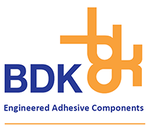Medical Adhesive-Related Skin Injuries (MARSI) are a significant concern in healthcare settings, particularly when it comes to wearable medical devices and tape applications.
Understanding MARSI is vital to improving patient care and product development which is where BDK excels. After years of experience within the healthcare industry, we recognise the importance of medical adhesive products that are compatible with every aspect of the skin to avoid these injuries and use our converting capabilities to achieve this.
Let’s take a closer look at medical adhesive-related skin injuries and how to prevent them.
What is MARSI?
The primary function of an adhesive in wearable medical devices is to adhere monitoring systems to the skin for long periods of time. In comparison, adhesives used in wound care need to provide security while also ensuring that the healing wound is not disturbed upon removal. Unfortunately, not all adhesives are created equal and choosing the wrong one can lead to a range of issues for both patients and healthcare providers, such as MARSI.
MARSI occurs when the adhesive is stronger than the individual cells, causing the epidermal layers to separate, the epidermis to detach from the dermis, or irritation and allergies caused directly by the materials used.
What Are The Different Types of MARSI?
MARSI isn’t a one-size-fits-all problem. There are various types, each with its unique characteristics:
- Irritant Contact Dermatitis (ICD): This is the mildest form of MARSI, often presenting as redness, itching, or a burning sensation. It occurs due to prolonged adhesive contact with the skin, leading to irritation.
- Allergic Contact Dermatitis (ACD): Unlike ICD, ACD is an allergic reaction to components in the adhesive. Symptoms include redness, swelling, itching, and sometimes blistering.
- Skin Stripping or Trauma: Excessive force while removing adhesive can cause skin damage, resulting in tearing or abrasions. This type of MARSI is painful and can lead to open wounds.
Prevention of Medical Adhesive-Related Skin Injuries
Proactive measures to prevent MARSI include:
Assessing the Patient’s Skin
Before applying adhesive products, evaluate the patient’s skin condition and history to identify potential risks. Skin sensitivity and allergies vary among individuals, and some adhesives can cause irritation or allergic reactions. Additionally, consider the patient’s age, as paediatric and geriatric skin may be more delicate and prone to damage. It’s important to conduct testing for allergies and sensitivities before any adhesive is applied to a patient’s skin.
Choosing the Right Adhesive
There are several types of adhesives used in medical care products, each with its unique properties and advantages. For example, silicone adhesives are gentle on the skin and are often used for wounds with fragile or at-risk skin as they provide a secure seal without causing trauma during removal.
Considerations for adhesive choice are not limited to direct application to the skin. The attachment to the medical device needs to be considered as well as the adhesives within the medical device as these can also cause MARSI or allergies. An expert medical device manufacturer will bear all these factors in mind when producing tape or device solutions.
Conducting Regular Assessment & Re-evaluation
Patient care doesn’t end with the initial choice of adhesive. It’s crucial to regularly assess and re-evaluate the tape and device adhesive to ensure it remains appropriate for the patient’s condition. Factors such as changes in wound status, the patient’s overall health, and any adverse reactions to the adhesive should be considered during these assessments.
Skin-friendly Medical Adhesives from BDK
By taking these factors into account and ensuring regular evaluation, medical manufacturers can help promote patient comfort while minimising the risk of complications. Ultimately, the right adhesive can make a significant difference in ensuring the best possible outcome for patients.
During our prototyping and development stage, we identify the right materials for your product development and undertake adhesive strength testing to provide a solution that meets your specification as well as minimise the risk of MARSI. We also use our capabilities, such as perforation, to adapt our products to certain skin types health monitoring systems.
Contact us today to find out more information and to discuss your project with us.
